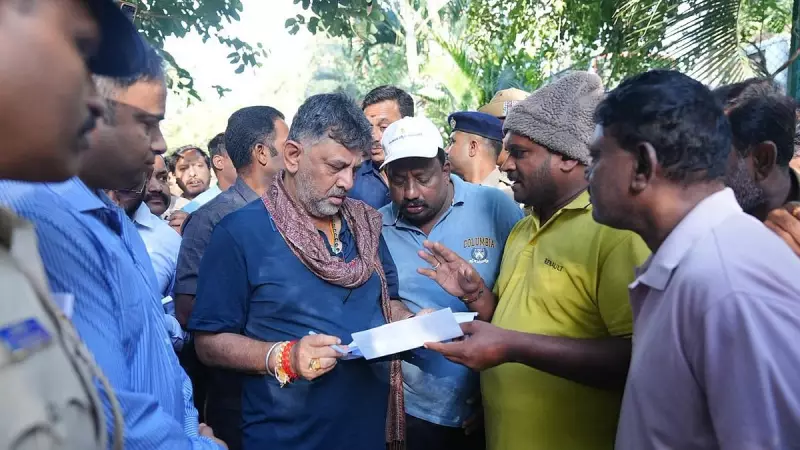
In a bold move that could transform Bengaluru's commuting landscape, Deputy Chief Minister DK Shivakumar has declared an all-out war against illegal encroachments plaguing the city's roads and public spaces. The senior Congress leader issued strict directives for immediate action against violators, signaling a new era of urban governance in India's tech capital.
Zero Tolerance Policy Announced
Shivakumar minced no words while addressing officials, emphasizing that there would be "no mercy for encroachers" who have systematically choked Bengaluru's infrastructure. The crackdown comes as part of a comprehensive strategy to address the city's infamous traffic congestion that costs commuters countless productive hours daily.
Multi-Agency Coordination
The Deputy CM has mobilized a coordinated effort involving multiple government agencies, with the Bruhat Bengaluru Mahanagara Palike (BBMP) taking the lead role. Officials have been instructed to conduct thorough surveys and identify all illegal structures, extensions, and obstacles that impede smooth traffic flow across the city.
Promising Results for Commuters
Shivakumar assured Bengaluru residents that the aggressive anti-encroachment drive would yield visible results within a short timeframe. "We are committed to making Bengaluru's roads wider, cleaner, and more efficient," he stated, acknowledging the daily struggles faced by millions of commuters in the bustling metropolis.
Long-Term Vision for City Infrastructure
Beyond the immediate crackdown, the government is working on a sustainable plan to prevent future encroachments. This includes:
- Regular monitoring and swift action against violations
- Digital mapping of public spaces
- Strengthening enforcement mechanisms
- Public awareness campaigns about civic responsibility
The initiative represents one of the most significant urban cleanup drives in recent Bengaluru history, with potential to dramatically improve the quality of life for the city's residents and restore its reputation as India's most livable metro city.






